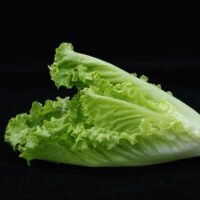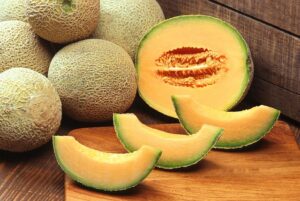Swiss Chard, Your Refrigerator, and Advice from Julia
As we close in on this journey at week #37, baby is the size of a bunch of Swiss chard.
Swiss chard falls under the extremely nutrient dense umbrella of dark, leafy greens. Kale is often thought of as king of the kingdom; however, this vegetable is so impressive, I think it knocks kale off the throne.
For starters, it tastes better. Swiss chard is not as bitter as kale. The stems are slightly sweet and have a similar taste and texture to bok choy stems. Chard leaves are mild, like spinach.
It’s high in antioxidants, vitamins A, C, and K, as well as calcium, magnesium, copper, zinc, sodium, phosphorus and vitamin E.
Definitely impressive. But wait; there’s more. 
Chard’s high fiber content aids in weight loss and helps improve blood sugar control. It benefits heart health, and the vitamin K aids in blood clotting and increased bone density.
Next trip to the grocery, Swiss chard is coming home with me. I’ve not been tuned in to this great green prior to our journey through the baby development garden.
Speaking of gardens, it can grow in poor soil and has a low requirement for water and light. There are something like 45 varieties (who knew?) with assorted stem colors that would brighten up any meal.
Ways to Add Swiss Chard to Your Life
- Add to tossed green salad
- Put a handful in your smoothie (you won’t taste it and you’ll supercharge your drink)
- Top a pizza with Swiss chard, mozzarella and tomatoes
- Toss wilted leaves into pasta dishes
- Add to your frittata
- Sauté it in coconut oil and add to your scrambled eggs
- Use it instead of basil when making pesto
- Stuff a chicken breast with Swiss chard and goat cheese
- Add to hearty soups and stews
- Use it instead of spinach in any of your favorite dishes
- Sauté with garlic as a side dish
Time to Spring Clean Your Refrigerator
Unless you do this on a weekly basis the day before garbage day, now is a good time to clean out your fridge. It can be quite a rude awakening to discover a scary experiment or two growing in a hidden corner.
Toss any outdated items and mystery sauces hiding out in those take-out containers and packets. Wipe the drawers, shelves, and sides of the internal compartment with a mild solution of your dish soap and water or mix a solution of one-part baking soda and seven parts water. Stay away from commercial cleaners that could transfer scent or chemicals to your food. 
If the thought of cleaning out your entire fridge feels like too much at once, break it into smaller projects. It may be easier to clean out a couple shelves or compartments a day. You may even feel inspired to move on to the freezer.
When you restock, stick with as many fresh whole foods as possible. Beware of foods with mile-long ingredient labels that you need cheaters to read. Use this opportunity to expand your vegetable wardrobe, starting with a bunch of Swiss chard.
Could you use some help getting back on your fitness track? Working your plan and still feeling stuck? Have you had success with a restrictive eating plan or diet and need help transitioning to a more varied menu?
Email me today. Those sizzling summer fashions are waiting for you.
Much love,
Carol
“You don’t have to cook fancy or complicated masterpieces—just good food from fresh ingredients.”—Julia Child









